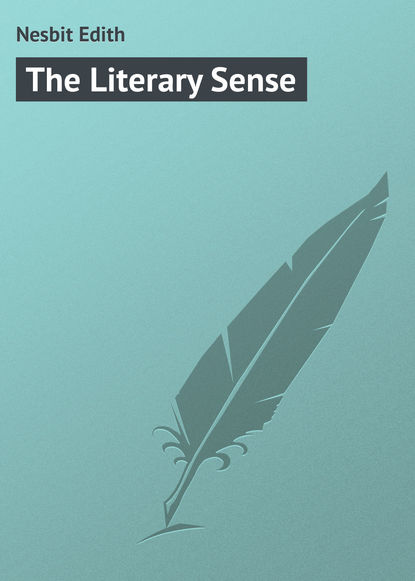По всем вопросам обращайтесь на: info@litportal.ru
(©) 2003-2024.
✖
The Literary Sense
Настройки чтения
Размер шрифта
Высота строк
Поля
"But why did you marry him?"
"To spite you – to show you I didn't care – because I was in a rage – because I was a fool! You might as well tell me at once that you're in love with someone else."
"Must one always be in love, then?" he sneered.
"I thought men always were," she said simply. "Please tell me."
"No, I'm not in love with anybody. I have had enough of that to last me for a year or two."
"Then – oh, won't you try to like me again? Nobody will ever love you so much as I do – you said I looked just the same – "
"Yes, but you aren't the same."
"Yes I am. I think really I'm better than I used to be," she said timidly.
"You're not the same," he went on, growing angrier to feel that he had allowed himself to grow angry with her. "You were a girl, and my sweetheart; now you're a widow – that man's widow! You're not the same. The past can't be undone so easily, I assure you."
"Oh," she cried, clenching her hands, "I know there must be something I could say that you would listen to – oh, I wish I could think what! I suppose as it is I'm saying things no other woman ever would have said – but I don't care! I won't be reserved and dignified, and leave everything to you, like girls in books. I lost too much by that before. I will say every single thing I can think of. I will! Dearest, you said you would always love me – you don't care for anyone else. I know you would love me again if you would only let yourself. Won't you forgive me?"
"I can't," he said briefly.
"Have you never done anything that needed to be forgiven? I would forgive you anything in the world! Didn't you care for other people before you knew me? And I'm not angry about it. And I never cared for him."
"That only makes it worse," he said.
She sprang to her feet. "It makes it worse for me! But if you loved me it ought to make it better for you. If you had loved me with your heart and mind you would be glad to think how little it was, after all, that I did give to that man."
"Sold – not gave – "
"Oh, don't spare me! But there's no need to tell you not to spare me. But I don't care what you say. You've loved other women. I've never loved anyone but you. And yet you can't forgive me!"
"It's not the same," he repeated dully.
"I am the same – only I'm more patient, I hope, and not so selfish. But your pride is hurt, and you think it's not quite the right thing to marry a rich man's widow. And you want to go home and feel how strong and heroic you've been, and be proud of yourself because you haven't let me make a fool of you."
It was so nearly true that he denied it instantly.
"I don't," he said. "I could have forgiven you anything, however wicked you'd been – but I can't forgive you for having been – "
"Been a fool? I can't forgive myself for that, either. My dear, my dear, you don't love anyone else; you don't hate me. Do you know that your eyes are quite changed from what they were when you came in? And your voice, and your face – everything. Think, dear, if I am not the same woman you loved, I'm still more like her than anyone else in the world. And you did love me – oh, don't hate me for anything I've said. Don't you see I'm fighting for my life? Look at me. I am just like your old sweetheart, only I love you more, and I can understand better now how not to make you unhappy. Ah, don't throw everything away without thinking. I am more like the woman you loved than anyone else can ever be. Oh, my God! my God! what shall I say to him? Oh, God help me!"
She had said enough. The one phrase "If I am not the same woman you loved, still I am more like her than anyone else in the world" had struck straight at his heart. It was true. What if this, the second best, were now the best life had to offer? If he threw this away, would any other woman be able to inspire him with any sentiment more like love than this passion of memory, regret, tenderness, pity – this desire to hold, protect, and comfort, with which, ever since her tears fell on his hand, he had been fighting in fierce resentment. He looked at the huddled grey figure. He must decide – now, at this moment – he must decide for two lives.
But before he had time to decide anything he found that he had taken her in his arms.
"My own, my dear," he was saying again and again, "I didn't mean it. It wasn't true. I love you better than anything. Let's forget it all. I don't care for anything now I have you again."
"Then why – "
"Oh, don't let's ask each other questions – let's begin all over again at two years ago. We'll forget all the rest – my dear – my own!"
Of course neither has ever forgotten it, but they always pretend to each other that they have.
Her defiance of the literary sense in him and in her was justified. His literary sense, or some deeper instinct, prompted him to refuse to use Benoliel's money – but her acquiescence in his decision reversed it. And they live very comfortably on the money to this day.
The odd thing is that they are extremely happy. Perhaps it is not, after all, such a bad thing to be quite sure, before marriage, that the second-best happiness is all you are likely to get in this world.
A HOLIDAY
THE month was June, the street was Gower Street, the room was an attic. And in it a poet sat, struggling with the rebellious third act of the poetic drama that was to set him in the immediate shadow of Shakespeare, and on the level of those who ring Parnassus round just below the summit. The attic roof sloped, the furniture was vilely painted in grained yellow, the arm-chair's prickly horsehair had broken to let loose lumps of dark-coloured flock. The curtains were dark and damask and dusty. The carpet was Kidderminster and sand-coloured. It had holes in it; so had the Dutch hearthrug. The poet's penholder was the kind at twopence the dozen. The ink was in a penny bottle. Outside on a blackened flowerless lilac a strayed thrush sang madly of spring and hope and joy and love.
The clear strong June sunshine streamed in through the window and turned the white of the poet's page to a dazzling silver splendour.
"Hang it all!" he cried, and he threw down the yellow-brown penholder. "It's too much! It's not to be borne! It's not human!"
He turned out his pockets. Two-and-seven-pence. He could draw the price of an ode and a roundelay from the Spectator– but not to-day, for this was a Bank Holiday, Whit Monday, in fact. Then he thought of his tobacco jar. Sure enough, there lurked some halfpence among the mossy shag, and – oh, wonder and joy and cursed carelessness for ever to be blessed – a gleaming coy half-sovereign. In the ticket-pocket of his overcoat a splendid unforeseen shilling – a florin and a sixpence in the velveteen jacket he had not worn since last year. Ten – and two – and one – and two and sevenpence and sixpence – sixteen shillings and a penny. Enough, more than enough, to take him out of this world of burst horsehair chairs and greedy foolscap, of arid authorship and burst bubbles of dreams to the real world, where spring, still laughing, shrank from the kisses of summer, where white may blossomed and thrushes sang.
"I'll have a holiday," he said, "who knows – I may get an idea for a poem!"
He cleaned his boots with ink; they were not shiny after it, but they were at least black. He put on his last clean shirt and the greeny-blue Liberty tie that his sister had sent him for his April birthday. He brushed his soft hat – counted his money again – found for it a pocket still lacking holes – and went out whistling. The front door slammed behind him with a cheerful conclusive bang.
From the top of an omnibus he noted the town gilded with June sunlight. And it was very good.
He bought food, and had it packed in decent brown paper, so that it looked like something superfluous from the stores.
And he caught the ten something train to Halstead. He only just caught it.
He blundered into a third-class carriage, and nearly broke his neck over an umbrella which lay across the door like an amateur trap for undesired company.
By some extraordinary apotheosis of Bank Holiday mismanagement, there was only one person in the carriage – the owner of the trap-umbrella. A girl, of course. That was inevitable in this magic weather. He had knocked her basket off the seat, and had only just saved himself from buffeting her with his uncontrolled shoulder before he saw that she was a girl. He took off his hat and apologised. She smiled, murmured, and blushed.
He settled himself in his corner, and unfolded the evening paper of yesterday which, by the most fortunate chance, happened to be in his pocket.
Over it he glanced at her. She was pretty – with a vague unawakened prettiness. Her eyes and hair were dark. Her hat seemed dowdy, yet becoming. Her gloves were rubbed at the fingers. Her blouse was light and bright. Her skirt obscure and severe. He decided that she was not well off.
His eyes followed a dull leader on the question of the government of India. But he did not want to read. He wanted to talk. On this June day, when the life of full-grown spring thrilled one to the finger tips, how could one feed one's vitality, one's over-mastering joy of life, with printer's ink and the greyest paper in London?
He glanced at her again. She was looking out of the window at the sordid little Bermondsey houses, where the red buds of the Virginia creeper were already waking to their green summer life-work. He spoke. And no one would have guessed from his speech that he was a poet.
"What a beautiful day!" he said.
"Yes, very," said she, and her tone gave no indication of any exuberant spring expansiveness to match his own.
He looked at her again. No. Yes. Yes, he would try the experiment he had long wanted to try – had often in long, silent, tête-à-tête journeys dreamed of trying. He would skip all the pitiful formalities of chance acquaintanceship. He would speak as one human being to another – would assume the sure bond of a common kinship. He said —
"It is such a beautiful day that I want to talk about it! Mayn't I talk to you? Don't you feel that you want to say how beautiful it is – just as much as I do?"
The girl looked at him. A scared fold in her brow warned him of the idea that had seized her.

















